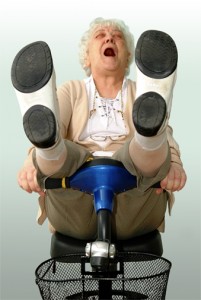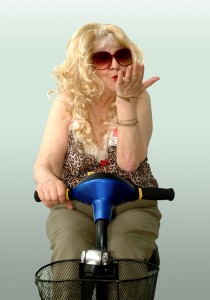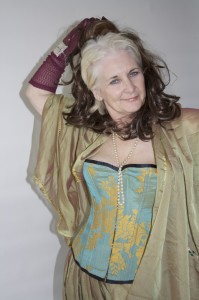

Solle Frankel, aged 100
It’s sound advice from Solle yet, as young people, we rarely take the time to stop and listen to the older generation. A survey undertaken late last year by the charity Jewish Care revealed that only a third of Londoners thought that people over the age of 70 were important to society. The charity, which provides health and social care services to hundreds of older people every week, responded in November 2010 with its bold awareness campaign Pearls of Wisdom. The campaign asks the vital question: what can we learn from our elders?
The charity asked fourteen clients to share some valuable bits of advice, drawn from their long and varied lives. The effect was a powerful, unique and at times funny collection of life lessons, ranging from warming affirmations about love – “Get a goodnight kiss, every night” Jerry Cooper, 87 – to astute observations about money – “Don’t buy the things that you can’t afford.. pay your debts”, Jean Nadler, 90.
The fact that older people can be witty, insightful and interesting should go without saying. Yet statistics show that only around half of those aged under 35 have spent quality time with anybody over the age of 70 in the last six months indicating a real reluctance to connect with a social group considered “past it”.
So what’s the thinking behind this? It’s not exactly that we don’t care, but so many of us unthinkingly buy into an established social stereotype: older people are grey, boring and a burden on society. Thankfully, several attempts have made recently to dispel this image. The BBC’s latest hit, When Teenage Meets Old Age, and the recently launched Campaign to End Loneliness, follow a similar track to Pearls. The Campaign to End Loneliness, a collaboration between four different organisations- WRVS, Age UK Oxfordshire, Independent Age and Counsel and Care- wants the ‘Big Society’ to volunteer it’s time to do more for older people. The campaign, which began last month, has highlighted the seriousness of a reality where an average of 10% of our senior citizens feel either “severely lonely” or “always lonely”. Visitors to the campaign’s website are invited to offer their time to an older person or share their tips on how to combat loneliness. It’s not clear yet what the impact has been but the campaign’s report into the UK’s “epidemic of loneliness” is a much needed call to action.
Add to this the success of the website We Are What We Do, an example of original, digital action. We Are What We Do, a not-for-profit company founded by community worker David Robinson, were horrified to discover that two-thirds of Britons now believe that young and older people live in separate worlds. In response, the organisation asked younger people to pledge to make the world a brighter place by undertaking a number of small activities with their seniors. From learning older people’s tried and tested recipes to teaching your granny how to text, the website aims to highlight the myriad ways you can bond across the generations. As a result, nearly 10,000 people have signed up online and the community continues to grow.
At a time when Britain’s population is ageing rapidly and the media seems intent on playing up inter-generational conflict (the supposed battle between the beleagured baby boomers and the spoilt students, as the newspapers like to put it, these new campaigns offer a fresh perspective. It’s also a message that young people are receptive to. As Eitan Amias, a 17-year-old volunteer at one of Jewish Care’s Reubens House residential home in Finchley explains, intergenerational interaction benefits everyone involved: “when visiting the home I feel that I’m not just helping the residents but also myself, as I tend to take that positive energy with me to last the rest of the week”
But for many young people volunteering to spend time with the older generation can offer more than just a glowing feeling of pride. It’s also a valuable way to learn new skills, an increasingly important concern as youth unemployment reaches crisis point.
Indeed, volunteering can be crucial in securing that elusive first job after graduation, as Jamie Field, Jewish Care’s youth and community development officer, discovered. Jamie started working for Jewish Care as a volunteer, aged 15, but the experience he gained through charity work helped him land his current, paid role at the organisation after university.
However, Jamie believes “it’s important to make volunteering cool. It has to be relevant… you could write a newsletter, make a movie or use your skills to help someone use a computer’; young people need to be challenged and inspired and charities can’t be complacent, even in the midst of a recession when young people have more time on their hands to help. Jamie emphasises that young volunteers can use their charity experience not just to get jobs, but also to assist them with their Duke of Edinburgh Awards or to provide additional material for their UCAS forms. So, perhaps it really is time to take Solle’s advice and start spending our time a little more wisely.





